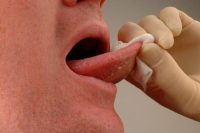November is Mouth Cancer Awareness Month and this is a topic we take very seriously.
Did you know that every time you visit the Dentist for your routine check up, this includes screening for the signs of Mouth Cancer?
In the UK 38,000 people are living with a diagnosis of head and neck cancer.
Around 60,000 people in the UK will be diagnosed with Mouth Cancer over the next decade.
http://www.cancerresearchuk.org/about-cancer/mouth-cancer
http://www.mouthcancerfoundation.org/get-info/learn-about
We can’t ignore the facts, the statistics are scary but be assured, we are looking out for you.
So what can you expect in your dental examination?
Outside:
- Observation of the face and neck, looking for swellings, skin abnormalities, moles or anything unusual or asymmetrical.
- Looking for changes in the colour or texture of the border of the lips and mouth.
- Feel of the lymph nodes in the neck, checking for enlargements or abnormalities.
Inside:
- Examine the inner surface of the lips.
- Look at the inside of the cheeks.
- Check the margin of the cheeks, where they meet the gums.
- Survey the tongue at rest.
- Survey the tongue protruded, asking you to stick your tongue out to check the colour, texture, symmetry and mobility.
- Inspecting the lateral borders of the tongue.
- Asking you to lift the tongue to the roof of the mouth, so the floor of the mouth can be clearly seen.
- Looking at the soft and hard palate.
- Depressing the tongue and asking you to say ‘Ahhh’ so the throat can be clearly observed.
https://youtu.be/7mv073MJzlg It’s not so different across the pond.
It’s up to you too! Find out the facts, know the risks, be aware of your lifestyle choices and keep vigilant to anything suspicious in your mouth.

Signs and symptoms.
- sore mouth ulcers that don’t heal within several weeks
- unexplained, persistent lumps in the mouth that don’t go away
- unexplained, persistent lumps in the lymph glands in the neck that don’t go away
Other symptoms may include:
- pain or difficulty when swallowing (dysphagia)
- changes in your voice or speech problems
- unexplained weight loss
- bleeding or numbness in the mouth
- a tooth, or teeth, that becomes loose for no obvious reason, or a tooth socket that doesn’t heal
- difficulty moving your jaw
- red or white patches on the lining of your mouth – these are common and are very rarely cancerous, but they can sometimes turn into cancer, so it’s worth seeing a specialist if you have them. For more information visit: https://www.nhs.uk/conditions/mouth-cancer/
Increase your awareness.
- Mouth Cancer can affect anyone but is strongly associated with age and gender.
- Twice as many men as women are diagnosed.
- The over 40s are those who are statistically more at risk.
- More than 9 in every 10 cases are linked to lifestyle risk factors such as
- Tobacco – which transforms saliva into a deadly cocktail that damages cells in the mouth and turns them cancerous
- HPV (the Human Papilloma Virus) – the virus that causes genital warts, the world’s most commonly sexually transmitted virus, acquired through oral sex.
- Alcohol – where excessive use is linked to more than 1/3rd of Mouth Cancer cases in men and 1/5th in women. While heavy drinkers and smokers are up to 35x more at risk!
- Diet – a good healthy diet with daily fruit and veg actually reduces the risk of developing Mouth Cancer.
 SPOT A CASE = SAVE A LIFE
SPOT A CASE = SAVE A LIFE

